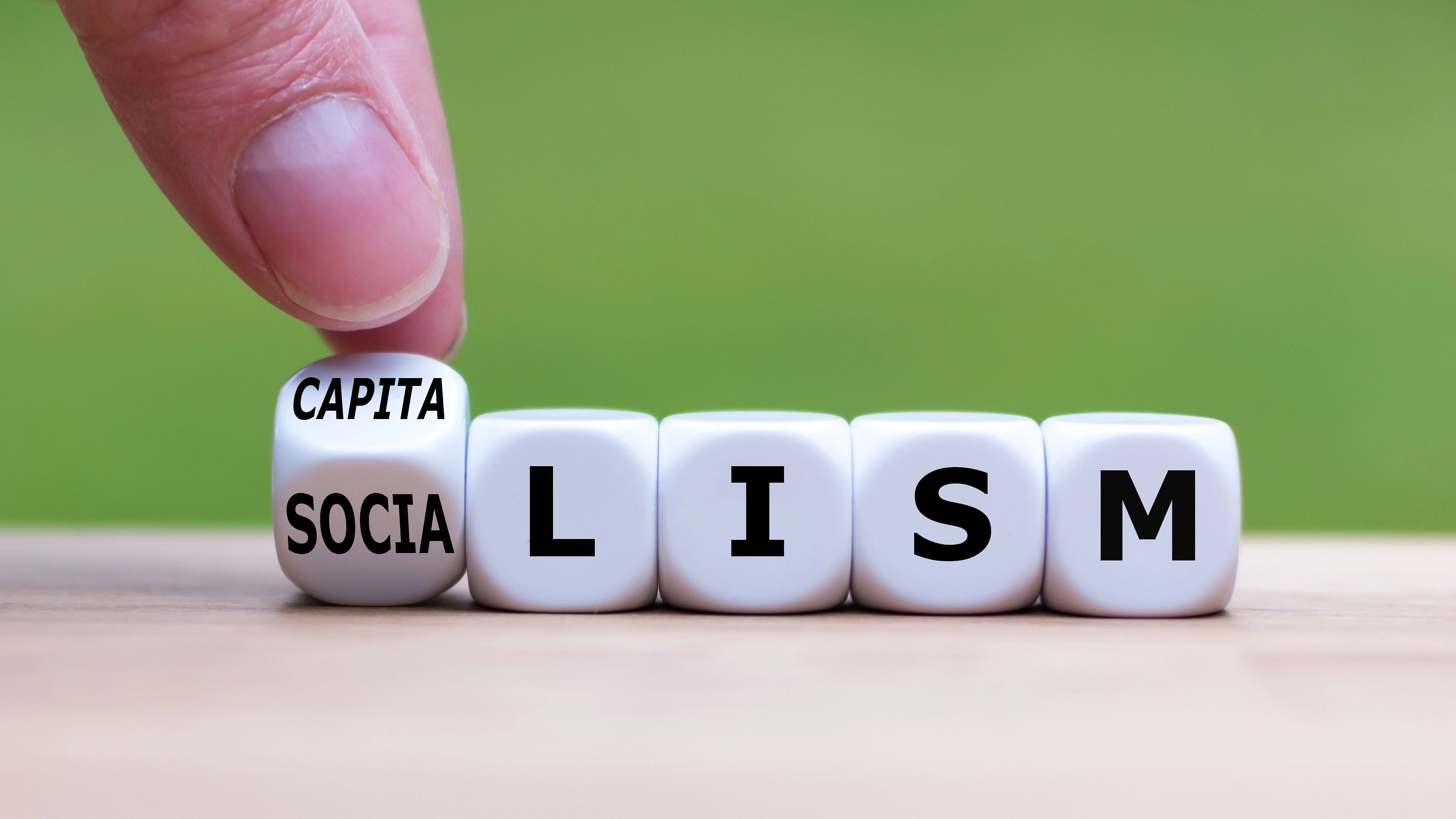
Representative image showing a hand flipping a dice and changing the word 'Socialism' to 'Capitalism', or vice versa.
By Betsey Stevenson
As a kid, I was obsessed with the Salem witch trials. Not the witches themselves, although there is something to be said for women using magic to determine other people’s destinies. What captivated and terrified me was the collective hysteria that led an entire community to believe something so obviously false. That was the real magic.
If I had been more interested in how some people’s beliefs can be manipulated — the methods — then I might have grown up to be a psychologist. But I wanted to know more about why some people wanted to manipulate others’ beliefs — the motives.
Economics has the answer. The insight of economists is that, subject to constraints, people are inclined to make decisions to maximize the quality of their own life — and these decisions don’t necessarily redound to the benefit of society.
In other words: Incentives can lead someone to accuse someone else of being a witch.
Economists who have studied witch killings have shown that negative income shocks (caused by bad weather) may have spurred these deaths. Others have argued that it was religious competition, while historians have pointed to the simple fact that the accusations of witchcraft were intermingled with bitter disputes over land. The incentive to take someone’s land or food is clear — and there are supposed to be rules to prevent it.
Economists don’t often talk about how the simple pursuit of self-interested goals doesn’t necessarily create a society in which everyone is better able to meet their needs. There is a benign reason for that: The notion that economic forces can coordinate an entire society to use its resources most effectively, as if guided by an invisible hand, is a powerful idea. This is the beauty of Adam Smith’s observation that “it is not from the benevolence of the butcher, the brewer, or the baker, that we expect our dinner, but from their regard to their own interest.”
Yet even Adam Smith recognized that people were following their own interest within a society whose rules and expectations had shaped their morals and thus their behavior. Today economists talk about people maximizing their own interests around constraints. These constraints determine whether their pursuit leads to good outcomes for society.
There’s a difference between saying the free market can lead to better outcomes, and that the free market will lead to better outcomes in the real world. More important, even the most free-market-loving economist recognizes that the market can never be truly free. It needs rules — and a government to create and enforce them. If profits and ownership become too concentrated, they will smother the forces of competition, destroying the free market.
And it’s not just government regulations: The constraints each of us face as we follow our own interests also matter for a well-functioning economy. These constraints are both formal and informal. They are the laws, social norms and moral code that regulate our behavior.
Consider something as simple as stealing. What stops us from stealing things we want? Economists argue that what matters is not the probability of getting caught, but the interaction between the probability of getting caught and the consequences for it. Those consequences can be formal (you go to jail) or informal (you don’t get any more dinner invitations). They can be personal (you have trouble falling asleep) as well as societal. The point is, if the consequences are severe enough, then there isn’t much stealing.
The flip side is that if consequences are too mild, people will steal. That’s why economics truly is a dismal science. People pursuing their own self-interested goals doesn’t always lead to a society in which everyone is better off.
At the same time, it is important to note that it is not the pursuit itself that is the problem. It is the decay of the laws and norms that govern that pursuit. Critics of capitalism often fail to see this point. They blame capitalism for all sorts of social ills, instead of the breakdown of the rules of capitalism.
Research shows that people who think others are lying, cheating and stealing are themselves more likely to lie, cheat and steal. One study found that surveys about trust predict trustworthy behavior more than they predict trusting behavior.
I teach my students that trust and doing the right thing are public goods: When you are more trusting and more trustworthy, you make it easier for others to join in. And when we are in an honest and trusting society, we can focus more on improving the economy for everyone. When it becomes rational to suspect others of breaking the rules, we spend a lot of our resources making sure that we aren’t being cheated or lied to.
Too many people think that one of the teachings of economics is that to act in your own self interest is to act against the interests of others — that a rational economic actor is by definition an immoral actor. This is a fundamental misunderstanding of economics. In fact, a good economic system requires a foundation of legal rules, social norms and personal morals. When that foundation begins to decay — when we start calling each other witches and burning each other at the stake — then the economic system does, too. It’s not capitalism that needs to be reinvented, it’s our social contract.